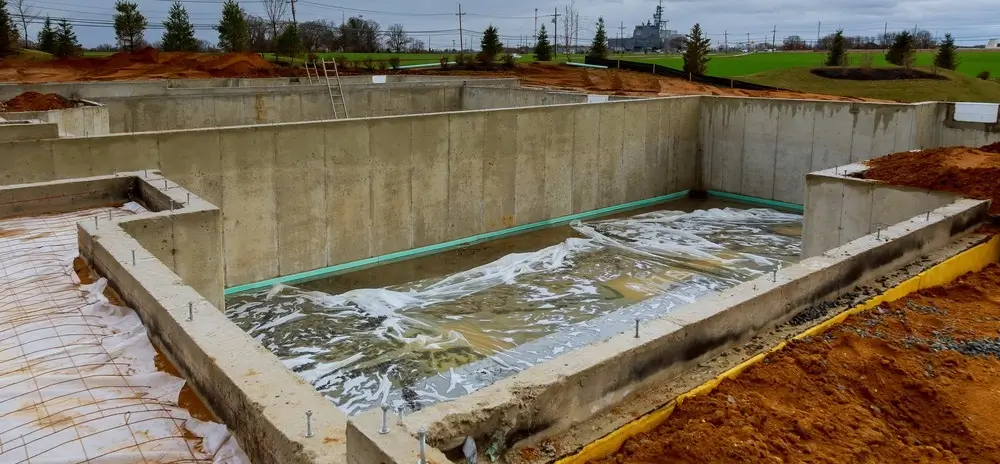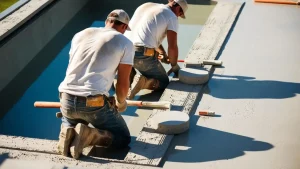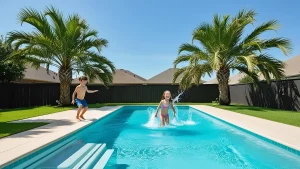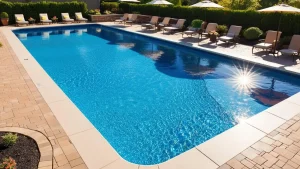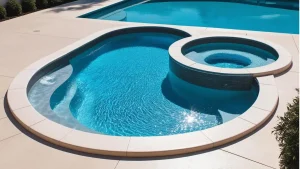Our EPS pools are light, environmentally friendly, and can be designed to your wish due to versatility in our swimming pool construction industry.
Still, being all kinds of pools, factors such as maintenance and the ability to withstand wear and tear are vital to getting the highest result for your money.
EPS Pool Maintenance Tips
Proper maintenance ensures your EPS pool stays in excellent condition for years.
Follow these tips to simplify pool care:
1. Regular Cleaning
- Deposit the content of the pool every day and eliminate items such as discarded leaves, dirt, etc.
- A pool vacuum should be used occasionally each week to clear residues from the bottom and sides of the pool.
2. Monitor Water Chemistry
- For safe exercise and enjoyment of swimming, the pH amounts must range from 7.2 to 7.6 levels.
- Water chlorine and alkalinities have to be monitored weekly to avoid the formation of algae in the water.
3. Inspect the Pool Structure
- Regularly check EPS panels for cracks or damage.
- Ensure concrete reinforcements are intact to maintain durability.
4. Winterize Your Pool
- Drain water to prevent freezing during winter.
- Use a quality pool cover to protect against weather damage.
5. Routine Equipment Checks
- Clean pool filters and pumps to ensure they are free from debris and dirt, which affects water quality.
- Any faulty part should be replaced immediately to avoid potential large costs in future repairs.
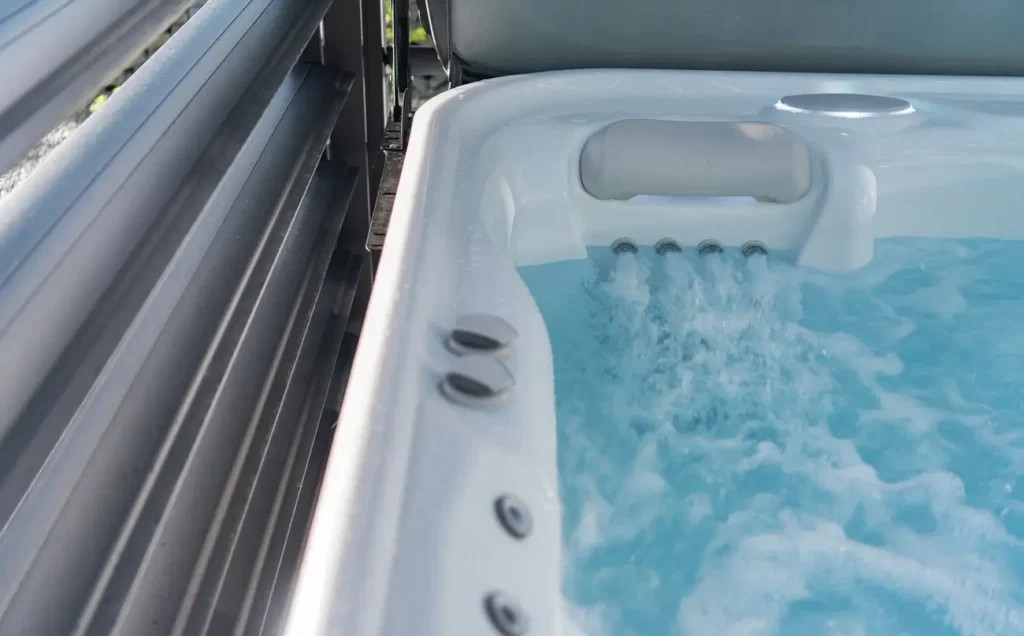
EPS Pool Lifespan and Durability
EPS pools are designed for long-term use, offering exceptional durability when maintained properly.
How Long Do EPS Pools Last?
When well maintained, EPS pools should last a minimum of 25 to 30 years or as the owner desires.
It tends to depend on factors such as how it was installed, how often it has been maintained, and the prevailing weather conditions, among others.
Factors Contributing to Durability:
- Reinforcement Materials: When combined with concrete or steel, EPS pools become extremely sturdy.
- Resistance to Wear: EPS is non-porous, reducing susceptibility to cracks and water absorption.
- Low Corrosion Risk: Unlike metal pools, EPS pools resist rust and corrosion.
How to Prolong Lifespan:
- Follow maintenance routines diligently.
- Use high-quality pool covers and cleaning equipment.
- Avoid using harsh chemicals that can damage EPS materials.
Do EPS Pools Require Less Maintenance?
Yes, EPS pools generally require less maintenance than traditional pools.
Here’s why:
- Non-Porous Material
EPS material resists algae and dirt buildup, reducing the need for frequent scrubbing. - Thermal Insulation
The high insulation properties minimize heat loss, leading to fewer chemical imbalances caused by temperature changes.
- Durable Construction
The reinforced design ensures resistance to cracks and leaks, eliminating frequent repair needs.
- Eco-Friendly Components
EPS’s recyclable nature and minimal material degradation reduce long-term upkeep requirements.
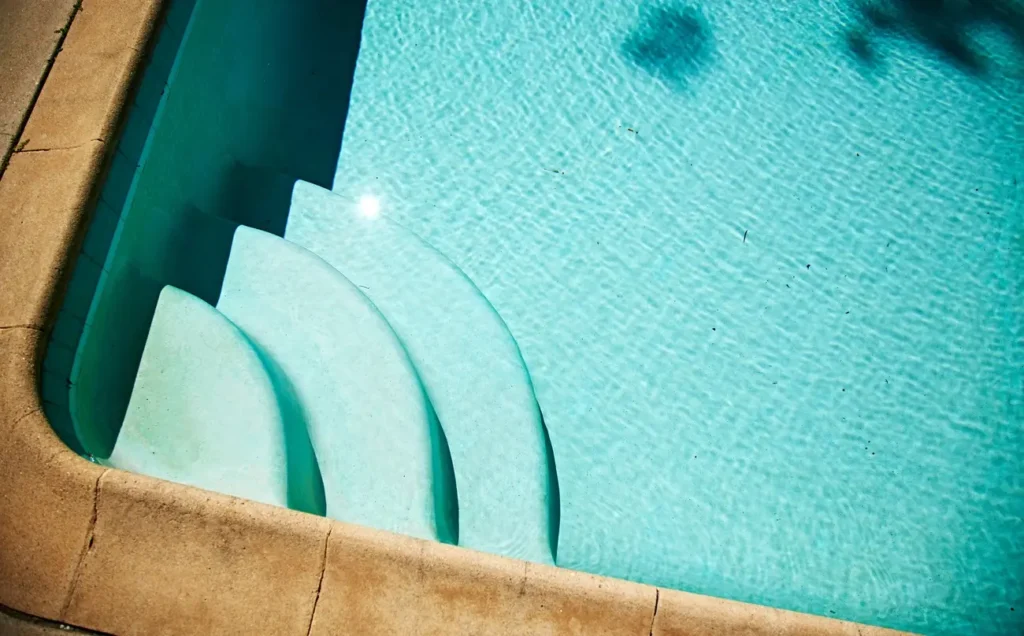
Common Issues with EPS Pools
While EPS pools offer many advantages, they are not without potential challenges.
Here are some common issues and solutions:
| Issue | Cause | Solution |
| Surface Cracks | Improper installation or heavy loads | Ensure professional installation and avoid excessive weight. |
| Structural Weakness | Insufficient reinforcement materials are needed. | Use high-quality concrete or steel for added strength. |
| Chemical Damage | Overuse of harsh cleaning agents | Use pool-safe chemicals to avoid material degradation. |
| Water Leaks | Faulty sealing or joint connections | Regularly inspect and repair seals and joints. |
| Insulation Degradation | Prolonged exposure to UV rays | Apply UV-protective coatings or use pool covers. |
Conclusion
EPS pools provide maximum advantages compared to other materials, and durability, easy maintenance, and sustainability are achievable goals. When you practice correct maintenance procedures, the swimming pool should be able to last for over 20 years.
Even though they do not need much maintenance as compared to traditional swimming pools, it’s appropriate to solve these problems on time to avoid the early degradation of hot tubs.
At the top of your priorities, if you need a pool that is efficient, low maintenance, and long-lasting, EPS pools should be your preferred option.
What is the lifespan of an EPS pool?
With proper maintenance, EPS pools can last 25 to 30 years or more, depending on factors such as installation quality, routine care, and weather conditions.
How often should I clean an EPS pool?
Regular cleaning is a vital part of EPS Pool Maintenance. You should remove debris daily and vacuum the pool weekly to prevent dirt buildup on the bottom and sides. Proper EPS Pools Maintenance ensures your pool stays in excellent condition for years to come.
Do EPS pools require less maintenance than traditional pools?
Yes, EPS Pool Maintenance is generally less demanding compared to traditional pools. The non-porous material resists algae buildup, and the durable construction reduces the need for frequent repairs, making it a low-maintenance option.
How can I prevent surface cracks in an EPS pool?
To avoid surface cracks, ensure professional installation, use proper reinforcement materials, and avoid placing heavy loads on the pool structure.
What are the benefits of EPS pools over traditional pools?
EPS pools are eco-friendly, durable, and thermally insulated, making them energy-efficient and requiring minimal upkeep compared to traditional pools.

